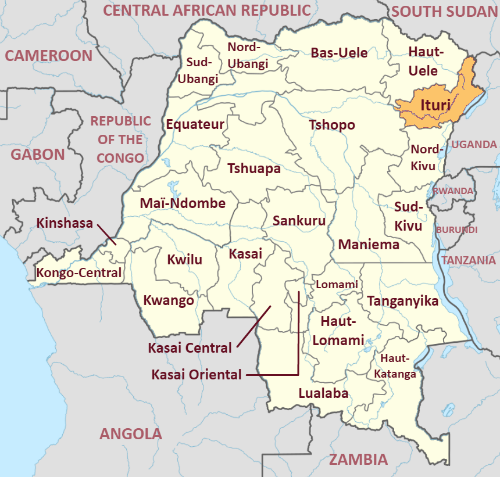In the early hours of Wednesday, the Democratic Republic of Congo (DRC) braced for a pivotal presidential election, but the day was marred by significant disruptions. In a historic decision, authorities extended the voting period into a second day, underscoring the myriad of challenges confronting Africa’s second-largest country during this critical election.
President Félix Tshisekedi, vying for a second term, is competing against a field of 18 candidates. The election, however, has been plagued by controversy and logistical issues, with widespread problems at numerous polling stations leading to extensive delays.
Martin Fayulu, the runner-up in the contentious 2018 election and a leading opposition figure, labeled the situation as “total chaos”. In Kinshasa, he voiced strong objections to the election’s validity, insisting that it cannot be legitimate unless all eligible voters are able to participate. His sentiment was echoed by Denis Mukwege, a Nobel Peace Laureate, who raised concerns about substantial electoral fraud.
These apprehensions have spurred calls for a comprehensive reassessment of the election, with several candidates advocating for a rerun. Contrasting this stance, Moïse Katumbi, a notable businessman and presidential contender, advised a more measured approach, acknowledging the existence of numerous failures while cautioning against premature conclusions.
The logistical challenges became apparent early on Wednesday. The DRC, with its 75,000 polling stations serving an electorate of approximately 44 million, faced delays in the delivery of electoral materials and issues with electronic voting machines. This resulted in voter frustration, as exemplified by accounts shared with the BBC, including a detailed narrative from a woman in Kinshasa who experienced chaotic and even violent conditions at her polling station.
According to the Symocel observer group, around 60% of the polling stations opened late, and 30% encountered problems with voter materials. Denis Kadima, the election chief, acknowledged these issues but affirmed that a considerable number of voters had managed to vote. He promised that those who were unable to vote on Wednesday would have their chance the next day, expecting smoother operations at the polling stations.
However, the election encompasses more than just the presidential race. It includes parliamentary, provincial, and municipal elections with an overwhelming 100,000 candidates. The DRC’s vast size and inadequate infrastructure, being four times larger than France and with two-thirds of its 100 million citizens living on less than $2.15 (£1.7) a day, amplify the complexities of these elections.
Compounding the electoral drama is the ongoing conflict in the mineral-rich eastern regions, where rebel activities have rendered voting impossible in some areas. Counting has started in locations where voting concluded, and results are anticipated by 31 December. The election will be decided by a simple majority, with no second round, potentially benefitting President Tshisekedi given the fragmented opposition.
As the DRC and the international community await the election results, the unfolding events are under close scrutiny. The outcome holds significant implications not only for the future of this resource-rich nation but also for the broader landscape of democracy and stability in the region.





